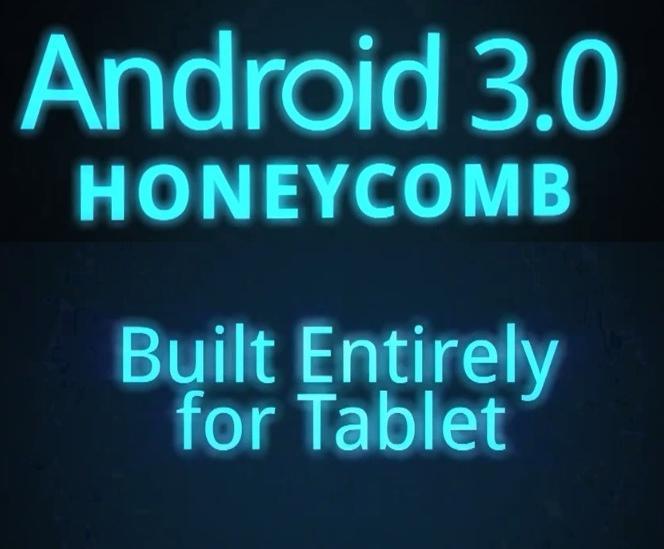
As you all probably know by now, CES was kick-started a little early with quite a few outings yesterday. One of them was a video teaser for the next generation of Android, Honeycomb. A lot has been rumored about the next version of Android and little is actually known about it. One claim was that there was a minimum hardware requirement (big surprise) of a dual-core processor. Dan Morrill came to our rescue again to debunk the bogus rumor.
Something that came up last night, coming directly from Google, has caused quite a bit of confusion. The video teaser for Honeycomb reveals that it is, “Built Entirely for Tablet.” It really isn't any surprise, as this has been hinted at for some time now. The confusing part is that just under a month ago, Andy Rubin said both phones and tablets will be moving to the new interface. So what does this all mean? To be frank, I have no clue.
In an interview at D: Dive Into Mobile, Rubin was asked, “Is Honeycomb just a version of Android that happens to work well on tablets, or is a 'tablet version' of Android?” Rubin's answer was, “Both.” This was nothing more than a poorly worded question with a very uninformative answer. In the last five minutes of the interview, Editor in Chief of Engadget, Joshua Topolsky, steps up to the microphone and asks Rubin a long question about when the Android UI will be simplified. In short, Rubin answers that we will see the first steps toward this in Honeycomb. This is where Topolsky slips in, “So Honeycomb, for phones -- that's your new UI?” Rubin simply answers, “Yes.”
The questions Rubin was asked and his answers really don't tell as much as I originally thought. He never directly states that phones will in fact receive Honeycomb. Considering that it is "built entirely for tablets," phones aren't going to get this specific update, but that isn't what I'm trying to answer. Look at Eclair, both 2.0 and 2.1 were considered Eclair updates. It's still perfectly logical for phones to receive Honeycomb since the video specifically states Android 3.0.
Will this be the divergence of an Android tablet-only OS and handset-only version? Maybe. But I wouldn't bet on it staying like that. Android wants to cut down on their fragmentation issue, why would they double it by splitting into two different sectors? If phones aren't to receive the Honeycomb 3.0 update, my guess is the OS versions will meet back up at version 3.1, Ice Cream, or somewhere down the long line of updates.
It's speculation at best, but it would make sense for phones to skip the first iteration of Android's new UI. Why would they out their newest developer's phone with Gingerbread if Honeycomb for phones was so soon to follow? I know if I were running the show, I would want my “highlight phone” running the latest and greatest when it hit shelves, or as soon as the update was available. What we do know is that the phone interface will be updated to what we've already seen and beyond, we just don't know in what version of Android it will be. Whether phones are upgraded to Honeycomb is irrelevant now.